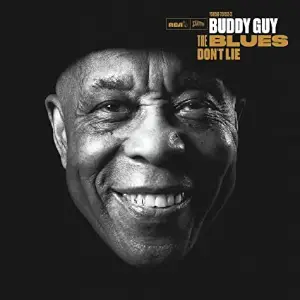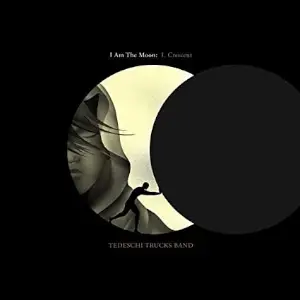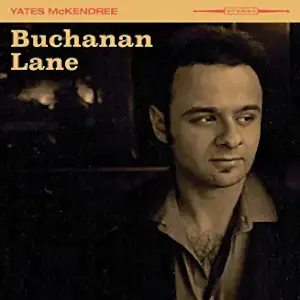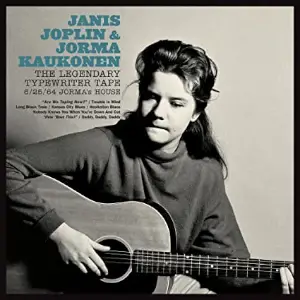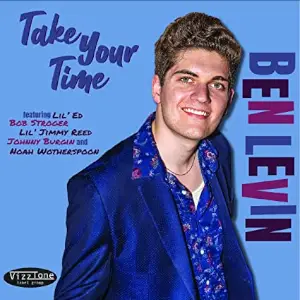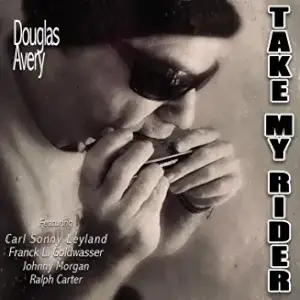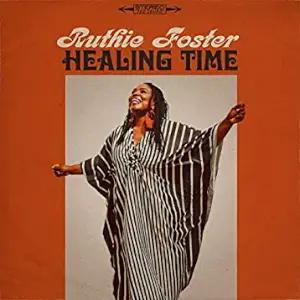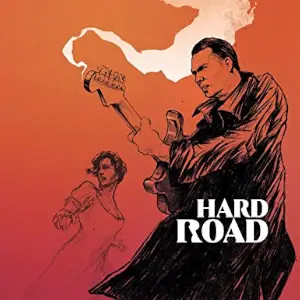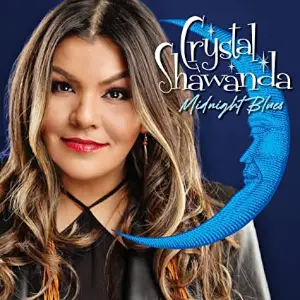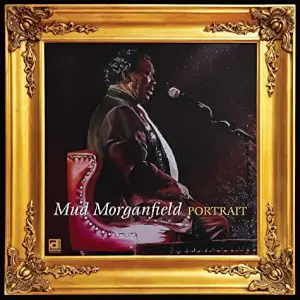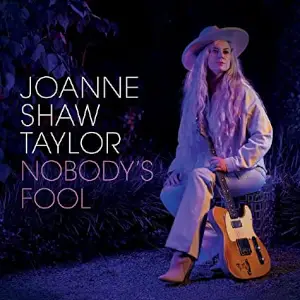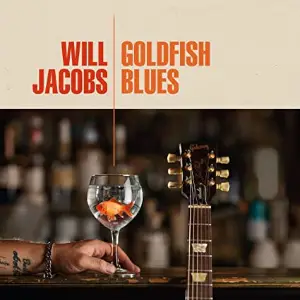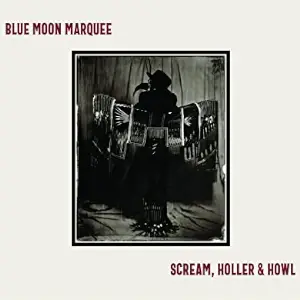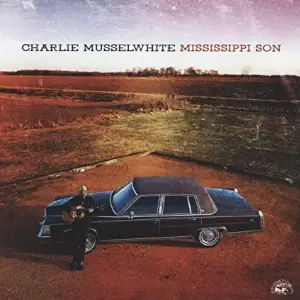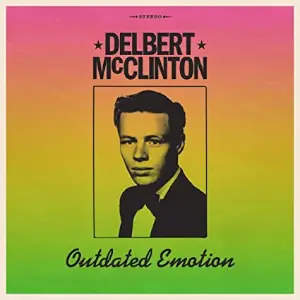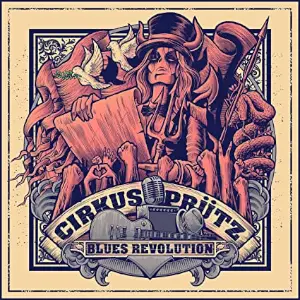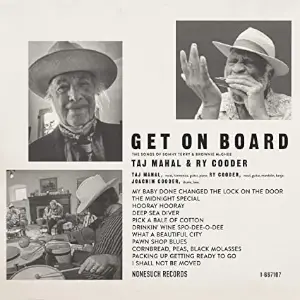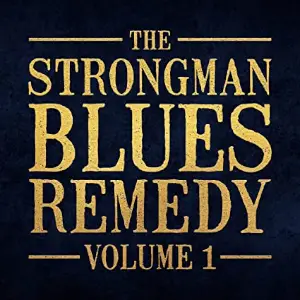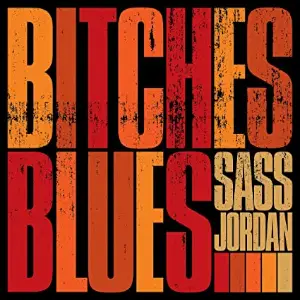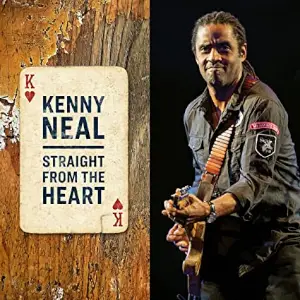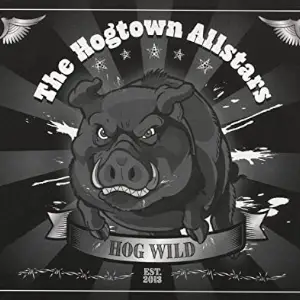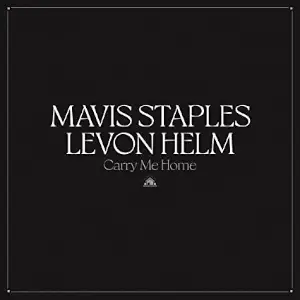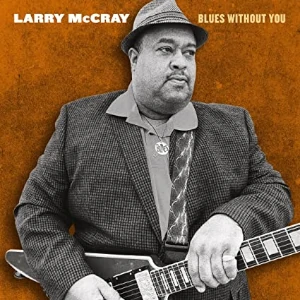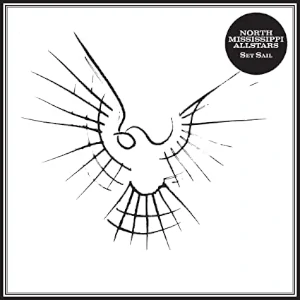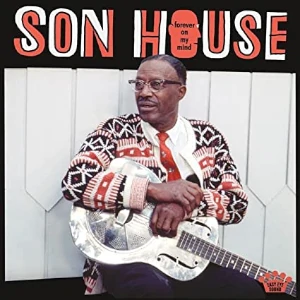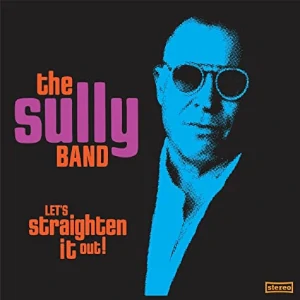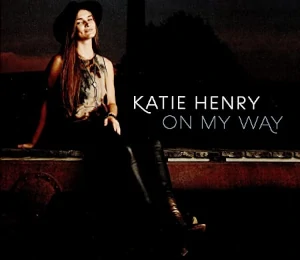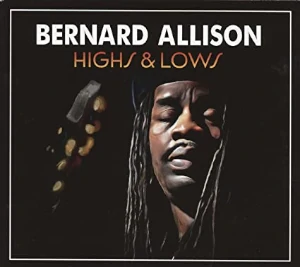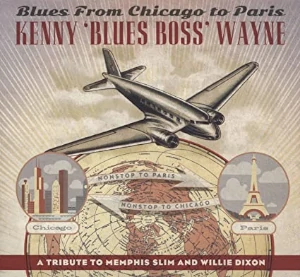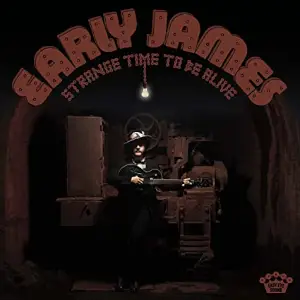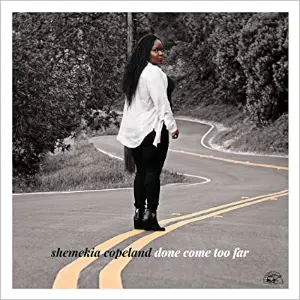2022 Blues Albums

As a Blues fan you will know that new album releases are always worth checking out. Here's a roundup of some of the best new blues albums that have been released in 2022 so far. Whether you're into traditional blues or more modern sounds, there's something here for everyone!
Buddy Guy seems to have recorded his latest album with the intention of asserting that he is — well into his tenth decade of life! — as vital and influential a bluesman today as he’s ever been. It’s hard to imagine any true fan of the genre disagreeing.
The album’s stunning opener, “I Let My Guitar to the Talking.” Tells us everything we need to know about the awesome power of Guy’s fretboard work and his clever wordplay. His style here may remind us of Jimi Hendrix, but only because the Voodoo Chile’ himself was a fan and acolyte. It’s the finest song on the album, but calling it a standout track doesn’t feel right. Simply put, nothing ‘stands out’ on The Blues Don’t Lie because everything is equally moving and raw. It is the best work of Buddy Guy’s career which is to say, it is the blues at its very best. Do not pass up an opportunity to experience it.
The Tedeschi Trucks band's latest project, I Am The Moon, is an ambitious and groundbreaking album with influences that span multiple genres. Its recording process began in January of 2021 at the home of bandleaders Susan Tedeschi and Derek Trucks, where Derek served as producer.
Tedeschi and Trucks have crafted a project that is more than just an ordinary album release; I Am The Moon consists of four distinct albums that are released across a three month cycle. Tedeschi and Trucks describe their musical journey as something "bigger and thematic," with unexpected chord changes, lyrical allusions, and themes that pop back up throughout the songs.
With its innovative structure, I Am The Moon stands out as album(s) of the year.
The discovery of a stunning new talent in the blues world has a way of calling into question the idea that the genre can only be performed by elderly broken souls with decades and decades of mileage. Such is the case for Yates McKendree’s debut album, Buchanan Lane. The young man may not have many miles on his odometer, but his is a voice that has traveled lifetimes.
The tasty implementation of horns, funky percussion and a number of surprises also adds to the joy of Buchanan Lane. That said, some of the album’s finest moments come when things are relatively stripped down. ‘Please Mr. Doctor’ is the finest example. Any more instrumentation would have distracted from McKendree’s achingly soulful vocals.
Of course, for those who need more, there’s ‘Always a First Time,’ a classy exercise in rhythm and blues that spares us neither rhythm nor blues.
Praise aside, McKendree’s voice — however strong — could use a little more grit to it. It’s pretty clear that he’ll get there someday, and until he does, Buchanan Lane is a worthy addition to any collection of top-notch contemporary blues.
Posthumous releases by long-dead legends have a way of raising eyebrows of suspicion. In this case, the collection of songs was never even intended for public release. ‘Typewriter Tape’ was a rehearsal between blues-rock diva Janis Joplin and Jorma Kaukonen (of Jefferson Airplane and Hot Tuna fame).
All that stipulated, this is a lovely chance to become a fly on the wall while a truly iconic vocalist prepares for a life in the blues. That her life would be all too brief makes the release all the more heartbreaking and listenable.
‘Kansas City Blues’ may be the album’s best track, but this isn’t so much a series of songs as a long warm-up session and the two participants make the most of it, running through numbers with admirable recklessness. In other ways, they play the blues the way it’s meant to be heard.
On a side note, the ‘Typewriter’ of the album’s name refers to the typing done in the background by Kaukenon’s wife. But Joplin’s work here is so stunning, there’s a chance you simply won’t notice any clicking at all.
It is appropriate (and perhaps intentional) that a blues artist who has yet to see his thirtieth birthday would name an album Take Your Time. The young bluesman seems to be in a rush to earn his bonafides in the genre, and this album is exploding with evidence that he’s well on his way. After all, he’s been at it since the tender age of fifteen.
Levin is a strong and undeniably gifted showman, but his smartest move here is to bring along some time-tested blues veterans for the ride. Missouri bluesman Bob Stroger’s gritty vocals make ‘Jazz Man Blues’ Take your Time’s best track. Meanwhile there’s Li’l Jimmy Reed who lends his singing skills to a number of songs, most memorably, to ‘Lump of Coal.’
Levin in the end is still a young man in a genre that doesn’t value youth as much as others. For now, it’s a wise decision to get high with a little help from his friends — provided his friends have the low down blues that Levin may be a ways from truly possessing himself.
A band formed in Gainsville, Florida may not have much knowledge of winter, but in this case, they sure do know about the blues. And their latest release has all the smoke you’d expect from them.
Kelly, the band’s leader and vocalist may lack the raw singing chops needed to pull such an enterprise off, but these shortcomings are easily forgiven and forgotten because of the guitar skills of Tim Fik. ‘Heartbreakin’ Blues’ offers the best sample of his work as well as the best track from Winter’s coming overall.
A close second must go to the instrumental ‘Ride the Wind,’ a solid, if not spectacular album closer that reminds us that Fik’s work is the true centerpiece of the band.
Winter’s coming is far from the very best that the blues world has to offer, but if it’s a steady beat and a driving rhythm you’re seeking, you could do a lot worse. Surely better releases will arrive soon, but for now, Winter’s Coming will keep things warm while you hibernate.
A well-traveled California native, Douglas Avery’s diverse background serves him well in the world of the blues. He’s seen a lot, experienced a lot and learned way too much from it all. As the saying goes, he could write a book. But fortunately for our purposes, he’s chosen music to unveil his soul.
The supple nature of Avery’s voice is perhaps its best quality. Like a vocal chameleon, he’s able to adjust to each song’s tonal setting and provide just the delivery needed. For example, ‘Jelly, Jelly’ is a straight-ahead love ballad by a man of few words. It demands an earnest, vulnerable growl and Avery gives us just that.
‘Malibu Burning’ on the other hand, is a heedless rush through hell. It’s not clear if the song is a metaphor for a soul meeting an unhappy fate or the state of California’s recent rash of wildfire’s — maybe both. But whatever the case is, Avery means every word. His vocals are just that sincere, direct and vivid.
Perhaps the biggest charm of Take My Rider, or Avery’s work in general is his brilliant harmonica skills. Perhaps no instrument of the blues has gotten more lost by fans' infatuation with new technology. Avery seems to be on a mission to revive the blues harp, and he does it simply by playing it the way the instrument should be: as a soulful extension of his voice. Just as he seems to mean every word, he sings, the same could be said of every note that floats from his harmonica.
The deep and solid background that Ruthie Foster has in gospel music can be heard — and felt — all over her latest release, Healing Time. Not only do several tracks contain a spiritual element in their thoughtful lyrics, but a trace of something ethereal and otherworldly can be detected even on songs that contain no explicit reference to a higher power or the world to come.
Ruthie Foster’s gentle singing style is perfectly suited for the songs here. She oozes a sense of confidence and warmth. No attempt is made to overwhelm the listener with vocal gymnastics. Instead she persuades where others may attempt to merely impress. She soothes where others may attempt to upset. If you like your blues singers gritty, messy and ill-tempered, Ruthie Foster’s Healing Time may not be the next album to add to your collection, but if you are open-minded enough to accept a soft voice with an easy going charm, you will enjoy this album. It’s just that powerful and satisfying enough to make you forget that the blues isn’t supposed to be this gentle.
The hard-driving blues of Oklahoma native Shawn Pittman owes a debt to a number of Legendary artists, and yet, as with any truly remarkable performer, he doesn’t fully sound like anybody except himself. From his sturdy vocal timbre to his clear-toned guitar lines, Pittman is somehow both an original and a solid replica of everything soulful and brilliant about the blues.
The albums strong opener, ‘Pocket Dial,’ serves both as a take on modern technology and an age-old tale of suspected infidelity. Funny, insightful and heartfelt, it is among Hard Road’s best. But the true standout in the pack is ‘Keep Pushing.’ Boasting a beat and driving vocal line as relentless as its title would suggest, it is an anthem of persistence and perseverance, the kind very much needed it a world of endless competition and limited opportunities. Shawn Pittman is a man and an artist who knows just how tough the world can be. And through it all, he’s right there at our side, with his guitar.
It’s oddly appropriate that an artist whose music combines the best of two uniquely southern American genres — country and the blues — would actually be a native of the nation just north of the US. Canadian Origin aside, Crystal Shawanda has the vocal chops needed to deliver and her latest effort, Midnight Blues is, from beginning to end, her finest.
‘What Kind of Man is This?’ is both a clever take on the Buddy Guy song that inspired it (‘What Kind of Woman is This’) and a strong reminder that the blues, for all its masculine charm, can be an effective template for good old fashion female seduction.
Another big winner is ‘I want my Soul Back.’ It laments the often soulless world of contemporary popular music in a way that sounds more heartfelt and hopeful than grouchy.
Crystal’s vocals throughout hold up beautifully — even when it is supporting songs that she could, and should, have rejected in favor of stronger ones. The occasionally weak source material, however, is the only truly weak element of Midnight Blues. Overall, it’s a fine effort by a singer who is sure to deliver more in the future.
As the oldest son of blues Legend Muddy Waters has inherited more than his share of talents. He can play and sing with the best of them and, at 68, he’s also lived enough life to imbue his blues with the experience that made his father’s music so vital.
Portrait begins on a spiritual note, kicking this off with ‘Praise Him,’ a seemingly autobiographical tale of redemption and purpose. It’s an achingly sweet number, but it’s only when Morganfield drifts into different direction that we get a sense of the man in full.
The next track, ‘Short Dressed Woman,’ brings us much closer to the Mud Morganfield that was so in need of redemption. It is an ode to human frailty that makes us laugh and despair. In other words, it is the blues.
By combining the sacred and profane, the Chicago born and bred, Morganfield demonstrates an ability to understand the human psyche better than the most-skilled sociologists. It is undoubtedly one of many talents he’s gotten from his father.
The final track ‘Good Morning Schoolgirl’ has the potential to be a little off-putting. But Mud has just the right playful touch to make us forget the darker elements of the tune. It’s funny where it could have been sleazy and touching where it could have been sad. On the whole, Muddy’s son has done a good thing here. A damn good thing.
Texas native Angela Strehli is noted in the blues world as a historian and occasional singer with an impressive pedigree. If you mistake her relatively sporadic recording career for an indication that she’s a dilettante, a quick listen to Ace of Blues will soon set you straight. Strelhi doesn’t quite rank with the very best of her blues singing peers — others have greater range and more menacing howl — but she’s very good at what she does, and most importantly, she loves every second of it, as the song ‘I Love the Life I Live’ vividly illustrates.
Another vital track is the ballad ‘Gambler’s Blues.’ Here Angela is at her very best, filtering her wounded words through a voice that has clearly felt the ups and downs of love over the years.
The album closes with SRV, a moving tribute to blues guitar master Stevie Ray Vaughan. It’s fitting that a woman known as a historian of the blues would finish the release with a love letter to a giant of the genre. In fact, it’s not much of a stretch to say that the entire album is a love letter to the blues by someone whose love grows stronger with every note sung. Ace of Blues is a strong release, by a strong, if not quite, amazing, performer.
In a career that has spanned decades and a stunning thirty-six albums, Rory Block seems determined to revive the folksy allure of the blues’s early years. And what better way to achieve this than to record and release an album of Block passionately covering a number of highly impactful and influential songs by female singers? Ain’t Nobody Worried is a joy from beginning to end. For those (like myself) old enough to harbor fond memories of these classics, Rory Block’s charming renditions provide a fresh take. For those too young to recall them, Ain’t Nobody Worried will serve as a lovely introduction.
The album begins with the singer’s take on the Staple Singers’s “I’ll Take you There.” It’s the song whose lyrics provide the album with its title. It’s also the song that provides Rory Block with the best template for her breathy, eager vocals. When Rory takes us there, we’re glad she did.
If there’s a downside here, it is that Block is, for the most part, covering singers who inhabit a different universe than her in strict terms of vocal ability. But none of this takes away from the album’s appeal. Block isn’t competing with any of these dazzlingly gifted ladies. She’s thanking them for the inspiration. She’s a fan, not a rival. And her love for the songs that lifted her up is breathtakingly evident.
Although he has six album releases under his belt, Jeremiah Johnson still sounds like a brand new artist introducing the world to his sound — and that’s a good thing. Johnson’s voice — both on guitar and vocals — contain all the brashness and boldness of a wet-behind-the-ears rookie, ready to take the blues world by storm. Hi-Fi Drive By has all the unhinged energy that its title would suggest. Better yet, the singer/guitar player behind it has the chops to make sure that energy isn’t the only thing it has.
‘Skipping School’ is the album’s best track. It’s not hard to picture the young Johnson as a hotheaded teen, seeking to steal the girl of his dreams from a rival by boasting of his manhood with a blistering solo. It’s as fun as it is deeply soulful.
Johnson sneers through “Sweet Misery” like a young punk who hasn’t yet experienced a full wound to his love life, but knows it may be on the horizon. It’s the only way to explain how such a gut-wrenching guitar solo is possible for a man under the age of seventy-five.
Hi-Fi Drive By is a little uneven. As with many young blues stars, Johnson often seems to want to impress us more than move us. But when he does succeed at moving us, he moves us a lot.
Joanne Shaw Taylor is no stranger to those who keep up with contemporary blues, but with so many stars emerging in the genre, it may be good to be reminded of her majestic voice and undeniable guitar skills. Nobody’s Fool is just that reminder.
“Won’t be Fooled Again” is the kind of song that paints a vivid picture of anguish and exhaustion. With help from guitar whiz Joe Bonamassa, Joanne makes sure we feel every note. But the album’s best track, is the more upbeat, optimistic “New Love.” It’s not a tale of finding a fresh paramour, but needing one, and nursing a bone-deep belief that such a thing can be found. It is unlikely to have been a random choice to finish out an album full of downbeat tales of defeat. Fueled by a Motown-inspired groove, it reaches for a future of redemption and warmth. Will the song’s protagonist find the future she seeks? It’s not clear. All that seems to matter is that she craves it and believes that it’s there. With this song, Joanne Shaw Taylor demonstrates a keen grasp of the healing power of the blues. And it makes Nobody’s Fool’ one of her best.
For more than a quarter of a century, Ruf Records has kept the genre of the blues alive by introducing its audience to a flood of contemporary keepers of the flame. Will Jacobs is the latest and his debut album on the iconic label hints at a future we’ll all someday admire.
Goldfish Blues is no flawless effort. At times, Jacob’s background as a Berkely-trained session cat shows through, meaning, his skills as a band leader with a fully developed sound of his own needs a little sharpening. He too often sounds like somebody who knows all the notes, but hasn’t yet lived them.
That being said, his debut release, at its very best, does more than merely suggest a strong future, it delivers. Jacobs excels most when combining tasty blues licks with down and dirty Stax-inspired grooves. “Grooving with you” is the strongest example, while “Funky Woman” comes a close second. By boasting hip-shaking rhythms as groovy as their titles would imply and marrying them with truly soulful fretboard work, he reminds us what the ‘B’ in R&B stands for.
While the album’s ballads don’t quite resonate as deeply, Goldfish Blues is, on the whole, a strong effort. Will Jacobs stands a good chance of someday being a star in the blues world. If that day comes, his debut release may be viewed as an imperfect, but occasionally brilliant beginning to a magnificent journey.
With a name as common as Jimmy Hall, you’d think the latest release from the commonly named Alabama native would sound a bit run of the mill. Thankfully, this isn’t the case. While Hall hasn’t invented any new development in the blues world, he has carved out a sound all his own. He blows the harmonica until it whips like a Gulf of Mexico hurricane. While his comparatively sedate vocals can often get lost in the midst of the harp storm, the songs don’t suffer. This is blues that lacks nothing in power and subtlety.
Ready Now’s spiritual undertones abound, sometimes explicitly, sometimes implicitly, and the title track is where you’ll find his faith in greatest abundance. Another standout track is the wistful ballad ‘A Long Goodbye.’ With help from guitar wizard Joe Bonamassa, the aching tune goes exactly where Hall wants it. And it’s a lovely place. If you’re ready for something that beautifully combines the softest and the hardest of Hall’s chosen genre, I’d say you’re ready now for Jimmy Hall’s latest album.
The opening chords of Blue Moon Marquee’s latest album sound harmless enough. The soft approach could be mistaken for something like lounge blues, the kind you’d be likely to hear in an elevator or bingo game at a retirement home . But don’t be fooled. This Canadian duo may have cut their teeth playing jazz clubs, folk venues and hospitals, but there’s nothing harmless about them.
Elements of folk, pop and jazz all get explored on Scream, Holler and Howl. But there’s more happening here than a tour through the duo’s record collection. Their unorthodox amalgam of influences all add up to a sound that is unlike anyone else’s and the full display is employed on every song, most notably, the rockabilly-ish ‘Hound Dog on a Chain.’
Another strong contender for the album’s best track is the sultry ‘Come on Down.’ Featuring the seductive vocals of the duo’s Jasmine Colette (A.K.A Badlands Jass) this tune is the aural equivalent of a glass of whiskey with a sexy stranger and a head full of mischief. Blue Moon Marquee’s Scream, Holler and Howl is about as fun, sassy and engaging as a blues album can be.
Seventy-eight year-old Mississippian Charlie Musselwhite’s time-tested voice has all the hiccups, the croaks and the mistakes that make it clear that the blues man wasn’t meant for a life in the opera. But thankfully, his chosen genre is one that celebrates imperfections, vocally, instrumentally and morally. Simply put, there’s a reason this album isn’t titled Ohio’s son or Minnesota’s son. It’s a moving homage to the state and state of mind that birthed him and gave him the blues in every imaginable sense.
While every track is worthy of praise, picking a clear-cut standout demands very little work. The haunting ‘In Your Darkest Hour’ features Charlie’s exemplary harp playing and contrasts the sweet melodies that list from it with his raspy tenor in a way that serves as a textbook definition of the blues.
Another exceptional song is the plaintive ‘Remembering Big Joe.’ On paper, there’s not much happening here. Just a succession of picked acoustic guitar notes that march into the wind vividly enough to bring to mind visions of a grouchy old man giving his grouchy side the night off.
Mississippi Son won’t get many mentions when blues fans contemplate the very best of the genre — and perhaps it doesn’t deserve to. It’s a flawed gem at best, but learning to love music like this for its flaws is part of the fun.
Known as a pioneer in ‘swamp pop,’ Louisiana native Tommy Mclain boasts a long, detour-laden career that has ultimately led him to something resembling the blues. And if the genre loves him as much as he loves it, it’s an affair to remember.
The title track sums up the circuitous path of his career and life. By weaving his own sandpaper rasp around the vocals of guest Elvis Costello, he invites us into the open book that is his life. And it’s a stunning look inside.
Other memorable tracks include the heartfelt ‘Livin’ on the Losin’ End’ and ‘The Greatest Show on Hurt.’ The latter has a charmingly confession quality, like a drunken lover with nothing to lose so he lays his soul bare. But the beautiful heartbreak doesn’t end there. From beginning to end, I Ran Down Every Dream, is one exposed nerve of vulnerability, and it feels as good to consume as it must have felt bad to create. Die hard blues fans may quibble over whether it truly should be classified in the same genre as Muddy Waters and B.B. King, but good luck finding a better label for something this hauntingly raw.
Born in 1940, veteran soul vocalist, Delbert McClinton has spent so much of his eighty-one years singing some variation of the Blues that he could be forgiven for sounding rote and uninspired at times. But whatever lapses of inspiration the Texas blue-eyed soul man has experienced, none are in evidence on Outdated Emotions. As always, McClinton sounds sharp, full-throated and teeming with emotion — outdated or otherwise.
McClinton’s latest release explodes most vividly and powerfully on the slower songs, so not surprisingly, the cover of Little Richard’s early rock standard ‘Long Tall Sally’ may have been the album’s only misstep. A rollicking tune of this sort demands a younger touch, a set of vocal chords that haven’t yet settled into middle age. Here, McClinton struggles to keep up with the frenetic pace, seeming lost and fatigued.
But it doesn’t take long for McClinton to recover. The next track, ‘I Want a Little Girl’ finds him right where he belongs, crooning against a delicate, bluesy piano accompaniment. It is poignant, desperate and aching.
In the end, McClinton’s latest album proves its title ironic if not downright wrong. There is nothing outdated at all about the panoply of emotions he expresses here, and more importantly, there is nothing at all outdated about the music these emotions give life to.
Depending on how you choose to view things, Cirkus Prutz’s Blues Revolution is either the hardest rocking blues album you’re ever likely to hear or the bluesiest rock album. If loud, angry guitars and relentless percussion is your jam, say hello to your new favorite Blues band.
The album starts out right, using its riveting title track to introduce the listener to a new sound and a new approach while also reminding us that nothing under the sun is truly new. In other words, these are blues that Robert Johnson may have danced to, provided he can get past the sheer oddness.
‘Modern Day Gentleman’ is an unusual mishmash of old-school chivalrous lyrics and a sonic attack that sounds like the soundtrack to a hate crime. So weird is the pairing that you can’t help but wonder how seriously the band wish to be taken. The same could be said for ‘Let’s Join Hands,’ a seemingly heartfelt plea for global brotherhood.
In the end it’s hard to know what to make of Blues Revolution. Does it represent a bold new direction in the genre it takes for inspiration or just a novelty? Perhaps it’s best not to think too much about the band and their latest effort. And for what it’s worth, Cirkus Prutz can be enjoyed simply as an experience. If you turn off your mind, join the revolution and leave aside worries about what it all means, Cirkus Prutz can be an enjoyable ride.
When Blues fans hunger for the days prior to the genre’s going electric, they usually have to take a deep dive into their collections and fish out something by a long-dead – and possibly forgotten – legend. But Taj Mahal and Ry Cooder — in their first collaboration in half a century — have made things a great deal less complicated. Get on Board takes us back to the days of acoustic guitars, harmonicas, washboards (at least I think that’s what I heard) and sloppily arranged vocals that wouldn’t sound out of place on any back porch in the Mississippi.
Picking a few tracks that dazzle the most is a tricky task, not just because everything here works, but also because the album’s organic flow makes it difficult to separate one song from another. That said, ‘What a Beautiful City’ is the song whose charms are hardest to resist.
Another strong contender for the standout track is the album’s closer, the gospel standard ‘I Shall Not Be Moved.’ It’s hard to imagine a more poignant way for the sun to set on this evening of old-school Blues. The song, like the two genres it straddles, is haunting, inspiring and palpably spiritual. Get on Board is not to be overlooked.
Canadian guitar bluesman Steve Strongman’s resume boasts an impressive array of stars he’s learned from, played with and opened for in his years on the road. Names like Jeff Healey and Buddy Guy come immediately to mind. The young Strongman may have a way to go before he acquires the mileage needed to join the list of such luminaries, but if the Strongman Blues Remedy Volume 1 is any indication, he’s well on his way.
Featuring a rotating cast of vocalists, Strongman’s album satisfies from beginning to end. But the songs that most stand out include the Harrison Kennedy sung ‘I don’t Miss You’ with its ironic chorus, “Lying is the best I can do.” Meanwhile another Harrison Kennedy tune ‘I Like to Ride’ also packs a loaded punch.
The Strongman Blues Remedy Volume 1 is an album that may later be looked at as the key moment where its leader fulfilled his early promise. It’s a good – if not quite great – effort that will do until his classic comes along.
The slide guitar is as constant a mainstay in the world of the Blues as any other variation of the instrument. With or without his trusted slide in place, Johnson plays the Blues like an upstart ready to take the throne any day now.
Revelation’s strongest tracks are the ones that allow its titular star to take center stage. The title track, for example, is a fine example of an instrumental that moves us not in spite of the absence of lyrics, but because of it. Words would only get in the way.
The album’s best song is ’32-20 Blues,’ not just because of the tasty guitar work, but for the way Johnson’s wizardry weaves itself around the song’s lyrics, story and theme. Meanwhile the Blues standard ‘Please Don’t Go’ serves as a funky and soulful platform for Johnson to dazzle us with more fretboard mastery as well as a delightfully jaunty beat.
Revelation is a must-have for young Blues guitar students. It is a lesson in skill, heart and restraint. For the rest of us it's a chance to be entertained by one of the very best at his craft. And if that doesn’t sound like enough, you probably haven’t heard Revelation.

Featuring band members whose resumes include the likes of B.B. King, Otis Clay and Johnny Taylor, Silent Partners have debuted with an album that makes every effort to keep alive the genre that have supported them. The result is a strong and relentlessly soulful collection of songs that would appeal to a new fan of the genre as much as someone who’s been listening to the blues as long as the Silent Partners have been singing it.
‘Love Affair with the Blues’ wins the award for the most charming song. It explains the tortured, but ultimately satisfying relationship blues fans have with songs of hopelessness and despair. It doesn’t say so in so many words, but it makes it clear that the union is far from one way.
‘Post Traumatic Blue Syndrome’ is among the darker tracks, reminding us that decades after the civil rights movement, the world is far from perfect. It is both somber and sweet in every imaginable way.
But Silent partners save the very best for last with ‘Beale Street Shuffle,’ A raucous homage to Memphis, Tennessee, it struts and strolls like an unapologetic street dandy who’s ready for the time of his life. Changing Times isn’t as raw and faithful to the genre as other recently released albums, but if you’re in the mood for a smooth, soulful dose of the blues, you could do a lot worse.
Soulful blues singer Janiva Magness has the aching vocal quality that she must have inherited from her Detroit upbringing. There’s an unmistakable strain of 60s pop Motown in her phrasing and the backing band that supports her. But at its core, this is the blues.
With its sassy back-up vocals and snappy drums, ’Don’t you Forget about me’ is the most unabashedly Motown-ish of the album’s tracks. It is also, not coincidentally, the most fun. Lyrically, it looks both backwards and forwards, celebrating a move past an unfulfilling union while also admit the past had its joy. It’s not much of a reach to see this song’s theme as emblematic of Janiva’s approach to the blues. She welcomes the new world of contemporary funk, pop and soul while also paying homage to her musical ancestors.
Another of Hard to Kill’s strongest efforts is the softer, sweeter ‘Lover Girl.’ The lyrics here are stunningly vulnerable, but Magness’s voice is the most important ingredient to this stew. She believes every word she sings, and we feel every word she sings.
All in all, Hard to Kill is among the summer’s best blues albums — in part because it covers so much more ground than the blues.
The aptly named British-born, Canadian singer Sass Jordan brings an equal supply of honey and hot sauce to Bitches Blues, her latest album. And it doesn’t take long for fire to get wondrously out of control. The opener, ‘Still Alive and Well’ could be described as AC DC strolling through the Mississippi Delta. It’s just that vibrant and dripping with barely contained rage.
Another standout song is the bouncy, honkey-tonk number ’Sailin’ Shoes.’ Jordan is the kind of blues performer whose sense of fun and reckless goofiness feels warm and genuine. On Sailin’ shoes it’s not hard to picture the vocalist fronting a band in the backwoods for nothing more than free sandwiches and a ride home. She sounds just that carefree and delighted.
Jordan’s vocals at times seem a little too constricted to fully express the demons beneath her pretty exterior as if she’s auditioning for an 80s hair metal band. But constricted her not, her growls and hisses are not to be denied. Overall Sass Jordan’s Bitches Blues is as strong and powerful an effort as you’d expect for a singer an album bearing those names.
Fiery British blues diva Joanne Shaw Taylor has burned her inimitable vocals into wax several times in her remarkable career, but, as with any true song stylist, she excels best in a live setting. For anyone who doubts this, there’s her latest effort, Blues from the Heart, a sixteen track offering that doesn’t come close to overstaying its welcome.
Kenny Wayne Shepherd’s blistering guitar work makes ‘Can’t you see what you’re doing to me’ the album’s most memorable song, while a strong second place goes to the George Gershwin standard ‘Summertime’ that gives Taylor just the space and tasty melody a voice like hers needs to soar. Joe Bonamassa’s vibrant guitar wizardry contributes additional sparks to the fire, and the result is pure magic.
Joanne Taylor Shaw has been around long enough to capture the ears and attention of anyone who knows their blues. But to those still learning to love the genre, this live album would be an exceptional starter’s kit.
New Orleans, Louisiana is often called The Home of the Blues. While residents of the Mississippi Delta may dispute this bold claim, there is no denying the significance of the Big Easy’s role in shaping the genre’s past, present and future. Born in 1957, blues guitar whiz Kenny Neal isn’t quite old enough to represent the city’s glorious past, but he seems to revel in helping to embody its present while also aiding in creating its future.
As you’d expect from a New Orleans native, Neal’s album “Straight from the Heart,” contains a strong mix of zydeco, electric blues and good old fashioned swamp blues. At its best it somehow weaves all of these diverse styles into something that blends the past with the present in a way that would likely satisfy any fan, even one with a limited appreciation of Neal’s chosen genre.
The painful lament of “Two Timing” may be the album’s finest track. It features a cameo by former Jackson Five guitar idol Tito Jackson and its lyrics are as searing and discomforting as a song about infidelity should be.
Another strong track is “Mount Up on the Wings of the King.” Featuring Christone “Kingfish” Ingram, this song praises the Riley B. King (A.K.A B.B. King) and in doing so, openly holds up the Blues past in a way the rest of the album only hints at. Straight from the Heart is a solid effort that highlights the work of on of the Crescent City’s brightest star.
All star blues efforts can be a hit-or-miss affair, akin to blending together to random ingredients to see if they combine to create a tasty dish. The result is sometimes delicious, sometimes disastrous. This time, the ingredients came together well and resulted in a fine — if not perfect — album.
Although most of the outfit’s members are well known beyond the borders of their home nation of Canada, the All-Stars have nonetheless established themselves regionally as group that lays down strong enough blues to make suspect they’re actually from someplace far south of the great white north.
The album’s opener is a dazzling display of how vibrant the blues can sound with bouncy horns and sassy back-up vocals. With stronger lead vocals, the track could be one of the years best R&B songs (so far).
Another standout track is the acoustic slow-burner “Biscuits and Beans.” Building to a deftly played harmonica solo, then pushing beyond it, this song highlights the band’s ability to make a lot happen with only a few instruments — always a key component of strong blues.
Altogether, the collection of songs here are uneven, with some tracks never finding the needed momentum to make magic happen. At its worst, it’s sluggish. At its best it has the energy of a lightning bolt. Like the animal this album and band are named after, Hog Wild is a messy affair, but any fan of blues can tell you, that’s not a bad thing at all.
From time to time, the blues world needs a talent like Mike Stevens to remind us all how vital the harmonica is to our favorite genre. Stevens’s skill on the mouth harp catapults us back into a world where the harp, far from being garnish, was, at times, a lead instrument, a guiding light to keep the band from getting lost amid the chaotic ramble of a great song.
Not that Stevens is alone here. He’s ably backed by a strong group who only make his harp playing stand out as brilliantly as it does. But it probably means something that the tunes that pack the most punch are the ones where his harmonica skills are front and center. “Living in Sarnia” is a great example. The Canadian’s ability to shift from joy to rage to contemplation are truly without peer on the contemporary blues scene.
Another gem is “Devil’s Bride,” a song every bit as satanically driven as its title would suggest. Not surprisingly, Stevens’s harp work leads the way, challenging his bandmates to keep up with his frenetic pace. For anybody curious about how big a role a great harmonic player can play in a blues outfit, Breath in the World is a true find.
Mavis Staples and Levon Helm are two names well known by fans of gospel, guitar-based rock and R&B. And although neither are regarded as blues artists per se, their strong, heartfelt vocals are enough for them both to earn blues bona fides. Staples spent much of her adult life as the lead voice in the family-based soul band The Staples Singers, while the late Levon Helm played drums and served as the part-time lead singer of the legendary rock outfit called The Band.
This posthumously released album sounds as fresh as it would have at the time of its recording. Some of the songs offer deeply reflective takes on the nation’s current woes that suggest that the pair were gifted with a clairvoyance at the time of Carry Me Home’s production. This is most true of the album’s opener, “This is My Country.” Mavis Staples has never sounded more stubborn, more incensed and more soulful than she does on this searing declaration.
Captured a year before Helm’s 2012 passing, Carry Me Home manages to look both backwards and forwards with equal clarity, sincerity and wisdom. The duo covers the Rolling Stones (“This May Be the Last Time”), Bob Dylan (“You Got to Serve Somebody”) and, of course, The Weight with Staples’s thundering wails adding needed support for Helm’s ailing vocals, as the once-skilled singer had been diagnosed with throat cancer.
Carry Me Home is a treat for anyone already familiar with the illustrious pair involved. But even better, it would be an extraordinary introduction to anyone who hasn’t yet discovered them. Either way, it deserves the highest of praise.
Edgar Winters’ all-star tribute to his brother Johnny is a roller coaster of an experience, reminding the listener of Johnny Winters’ contributions to the music world while featuring a dazzling display of talents.
Both Winters brothers have spent their lives living and playing a glorious collision of southern blues and guitar heavy rock and roll, so it should surprise no one to learn that Edgar’s homage to Johnny would rock so hard while also packing the unfiltered punch of the blues.
It’s interesting that on this collection of mostly high-octane rock screamers that the best track is the back to the basic Blues track Lone Star Blues featuring legend Keb’ Mo.’ But there are other songs of note here that are just as deserving of praise. Michael MacDonald’s earthy vocals on Stranger are as fine as the pop singer has ever recorded. Meanwhile Joe Bonamassa acquits himself magnificently on two stellar tracks, ‘Mean Town Blues’ and ‘Self Destructive Blues.’
Brother Johnny is a truly explosive tribute to a highly impactful blues rocker who spent much of his life creating truly explosive works himself. If you like your blues with a little fire in the tank, this is an album you simply must own.
Even before the music of 76 year-old Robin Trower’s latest effort begins, the title provokes curiosity. Does Trower himself feel he has no more worlds to conquer? Has he grown bored with his place in the world of the blues?
The music itself puts those nagging questions to rest quickly. Even as he closes in on his eightieth birthday, Trower sounds as vibrant and passionate as ever — which is saying quite a lot given his impressive body of work.
The gentle ‘Birdsong’ might be the album’s best track. The way it sways in the breeze created by his backing band is a lesson in subtle voicing that should be taught to any young apprentice in the genre. On the other end of the spectrum of intensity is ‘The Razor’s Edge.’ The track begins with a blazing lick from the master and never fades. It demonstrates without flaw how, in the hands of a guitar whiz, a few well-chosen notes can impact the listener in ways the finger gymnastics of some simply cannot.
Trower may not have any more roads to conquer, but he doesn’t need any. As long as he keeps conquering Bluesworld again and again, his brilliance will be warmly received.
Native Pennsylvanian Gina Sicilia has slowly climbed her way into the hearts of Blues fans, having shared the stage with such leading lights as Beth Hart, Shemekia Copeland and Joe Bonamassa. If you’re still unfamiliar, Unchange is just the excuse you need to seek her out and savor her unforgettable voice.
The simmering tone on the opening track ‘Healing Time’ sets the tone flawlessly. Not only does it showcase her deeply soulful voice, it demonstrates her subtle voicing. Unlike many singers of the genre who are determined to out-sing their songs, Gina knows how to let shifts in cadence work for her. There are even moments when she lets silence do the talking.
Another stunning work is ‘Valentine,’ which serves double duty both as a confessional and a love song. Once again, Gina’s vocals are the engine that drives the track. Little accompaniment is needed to make the song memorable and lush.
Unchange is a gorgeous album by a soulful blues singer whose voice demands attention. If you succumb to that demand, you’ll be richly rewarded by an introduction to a voice you’ve been ignoring for far too long.
With a rough-hewn voice straight from a bottle of Tanqueray, Florida native Dana Fuchs is the kind of vocalist that no fan of the blues has an excuse to be unfamiliar with. Her latest effort Borrowed time embeds her rich vocal tones in a garden of crunchy southern rock. And it’s right where she belongs.
The ominous tone of ‘Blue Mist Road’ provides exactly the ideal setting for her as she amply demonstrates the Blues’s capacity for poetic storytelling. It’s a song in which nothing actually happens, but somehow, everything unfolds.
Another outstanding track is the heartbreaking ‘Nothing You Own.’ It’s a tasteful fusing of blues and country that reminds the listener how beautifully these two genres can blend when guided by a superior voice.
Fuchs, for all her raw power, has a fairly limited range as a singer and that’s why her skilled backing band deserves a shout-out for making Borrowed Time such an experience in blues excellence. It is not to be missed.
Well-traveled Blues stalwart, Ronnie Earl’s latest effort ranks among his career highlights. Backed by a remarkable collection of gifted partners in crime — many of whom boast an impressive resume in their own right — Earl’s work here is even more tasty than usual as he combines slow-burning moody tracks with songs that contain enough raw intensity to make you wonder if this Queens, New York native was switched at birth with someone whose roots are much closer to the Mississippi Delta.
For all the breathtaking originality of Earl’s approach to the Blues, it must be admitted that the album’s two standout tracks are covers. Jackie Wilson’s (You Love Keeps Lifting Me) Higher and Higher gets a tremendous jolt from aptly named vocalist Diane Blue.
But Ronnie Earl’s cover of John Coltrane’s classic Alabama is something else entirely. With its unexpected combination of haunting piano, jaunty drums and brilliantly restrained guitar work, the tune seems to be a defiant reply to anyone who doubts if the genres of jazz and the blues can play nicely together. It is no exaggeration to describe it as a classic of both genres.
All together, Ronnie Earl’s teaming with the Broadcasters gives us one of the young year’s best blues albums. Missing it would truly give any of the genre’s fans the blues.
Unheralded blues guitar veteran Larry McCray has the kind of chops that make any fan unfamiliar with him wonder why it has taken so long to get acquainted. He has the strong guitar chops and the ferocious growl of a man who has learned all the right lessons from all the right legends.
Not surprising since he’s had the honor of meeting and playing with a number of the genre’s luminaries, including the three Kings, B.B, Albert and Freddie.
‘Down to the Bottom’ is far and away the album’s most distinguished track. It’s heartfelt and mournful without falling into sentimentality, featuring reflections on the past and the present. Best of all, its attack balances healthy doses of McCray’s vocals and guitar. It may be the most powerful blues song of the young year.
Another of the album’s standouts is the instrumental ‘Roadhouse Blues.’ Here, the master’s guitar takes center stage and the result is a searing collection of notes that rattle the soul the way any good blues song – with or without vocals – should.
Blues Without You is the kind of release a newer fan should get to know, if only to learn the basic blueprint of the genre. McCray takes us through every imaginable emotion and he does it in style. This is a truly masterful effort.
The sailing done by the North Mississippi Allstars could hardly be considered an expedition through uncharted waters. This four-piece country blues outfit plays straight-ahead contemporary blues with a strong lean into the genre’s well-trodden past. But the old saying ‘if it ain’t broke, don’t fix it,’ seems to apply here. And the last time anyone with ears to hear has checked, the blues ain’t broken.
If the Allstars lack anything, it’s a powerhouse vocalist to provide the kind of raw edge typically found in the most memorable of blues combos. So it makes sense that the album's best tracks would be those whose enjoyment hinges least on the vocals. On Set Sail, that means the dance-happy ‘Juicy Juice’ stands out the most in spite of its underwhelming singing. But there’s also the album’s closer, ‘Authentic.’
Here the band drifts away from typical blues fare and injects contemporary social commentary into the mix. Getting a refreshing take on current events in a genre mostly thought of as antiquated is as enjoyable as it is surprising.
On the whole, there’s not much here that will catch the average blues fan off guard, but that’s okay. Less okay are the substandard vocals. Set Sail is a decent, but far from extraordinary take on the blues. Discriminating fans waiting for the next classic may want to keep waiting.
Son House is a name any dedicated blues fan knows well. The highly expressive slide guitar master may be long gone, but his sound lives on in the hearts of his many fans and on the fingertips of his proteges. For his army of fans, this collection of previously unreleased material may provoke the question “Do I really need to add another Son House record to my blues collection?”
The answer is a decisive maybe. For a newer fan of the blues who has yet to discover the joy of Son House’s music, Forever on My Mind is a great place to start. The records are of great quality considering the age and the flaws in the initial records. Additionally, the choices here are great. ‘Louise McGhee’ showcases House’s plaintive voice and, perhaps better than any other song in his catalog, illustrates his ability to combine gritty, genuine vocals with tasty guitar work.
Another excellent inclusion is ‘Levee Camp Moan,’ a salient reminder of how the blues was built on the backs of hard-working men who wanted nothing more than a small taste of dignity.
The listener already boasting an expansive library of Son House’s music can make up their own mind about the need to add another to the stack, but for the new blues enthusiast, the verdict is easy: Forever on My Mind is a must have.
When it comes to overpowering, rock-tinged blues, it’s hard to think of a more thunderous sounding trio than these three Canadians.
Guided by the steady and strong vocals of Jeff Rogers and JW Jones, Set the Record is a joy from its first track to its last, combining the harmonic and melodic intricacies of pop/R&B with the raw propulsion of the blues.
The album’s opening track, ‘Man of Steel’ may be its best — or at least its most potent. It kicks the party off with just the right kind of mood, threading self-effacing humor into an otherwise steamroller of a track.
Another big winner here is the rhythmically complex and lyrically deft ‘Something You Should Know About Me.’ In total, Set the Record is probably better appreciated by fans who like a little (or a lot) of mainstream rock in their blues.
Purists would be better off staying away. But if loud and intense are words to describe your taste in the genre, welcome to your favorite album of the year — so far.
The impact of gospel music on the blues is a debt that has never been fully repaid — or acknowledged by fans of the genre. But thankfully, an album like I just Want to Be a Good Man, makes the connection of genres clear.
The story behind the album is a sad one. It is a tribute to a septuagenarian gospel artist Pastor Wylie Champion, who passed away in the midst of releasing his first record. His wife Mother Champion died a few months earlier.
For all the tragedy undergirding this effort, the overwhelming emotion that fuels it is one of release. The album’s best tracks remind us of the blues’ capacity for catharsis. No track serves this purpose better than the aching ‘Storm of Life (Stand by Me)’ Another standout song is the ever-optimistic ‘He’ll Make a Way.’
Pastor Champion’s album may embody an unfinished legacy, but as long as the genres of gospel and Blues carry on, his songs will never be incomplete.
If you’re starting out 2022, seeking a demonstration in how vibrant and alive the blues can sound when paired with robust R&B horns and a throbbing rhythm section, The Sully Band’s latest effort is very much for you. While it owes more to 60s pop/R&B than to the blues proper, its blues roots are always showing — even when they seem to drift far afield of the genre.
The best example of the blues adding gritty spice to an otherwise pop-influenced playlist occurs on the stripped-down cover of Jackie Wilson’s ‘Higher and Higher.’ Where the original is draped in heavy instrumentation on top of Wilson’s larger than life soars and swoons, this version keeps things soft and slow, taking a delightful detour through the blues before getting where it needs to go.
Much the same could be said of the Temptations cover ‘I Wish it Would Rain.’ Sully (yes, that’s the leader’s name) doesn’t have the vocal chops to compete with Motown’s crooner David Ruffin, but a soulful harmonica solo helps us forget this. Overall, Let’s Straighten it out would be a strong addition to the collection of any fan of the blues – and even more so to a fan of rhythm and blues.
Multi-instrumentalist New Jersey blues rocker Katie Henry offers an energetic album that showcases her versatile skills on vocals and just about every other instrument. Although not a debut album, this impressive effort from an artist who has flown beneath the radar of many blues aficionados could soon turn out to be her coming out party. All-in-all, On My Way, is best described as a trip to the Mississippi Delta with a short stop through Nashville.
There is much to like here, but the country-tinged ‘Without a Fight’ may well stand out as the best track of the album. Her voice is warm, open, charming and well-suited for the accompanying steel guitars and soaring melody. On top of everything else, twang is not her enemy. ‘Catch me if you can’ is another enjoyable song that finds the bandleader in a comfortably country mood. It’s tempting to wonder if Henry might be more naturally inclined to the country side of things because she sounds so at home in the genre (New Jersey upbringing aside). Still, On My Way would be a great introduction to the performer to those who have yet to discover her, regardless of their favorite genre.
With so much contemporary blues sounding sterile and lifeless, it is easy to forget how dangerous, edgy and funky the genre that once belonged to Muddy Waters and Robert Johnson used to be. Thankfully, Bernard Allison is on a mission to remind us of the genre’s early roots with his latest album Highs and Lows.
As the son of blues star Luther Allison, Bernard must have learned and inherited much of the genre in childhood. And his dazzling DNA is on vivid display here, most stunningly on the mournful ‘Strain on the Heart.’ On both his vocals and his fretwork, Allison sounds like an exhausted lover who can’t give anymore or take anymore. It’s the kind of song that the blues was seemingly invented to highlight.
Another outstanding track is the slow-shuffling ‘Side Step.’ His tasty multi-tracked guitar work rivets the listener in both channels while serving as a demonstration of everything fans of the blues adore. It wouldn’t be surprising to see Bernard Allison eventually mature into one of the very best of his type, a stylish guitar whiz with gritty vocals to match. Highs and Lows is a truly superior effort.
On paper, the combination that made this album possible seems like a science-fiction pairing. A journeyman belter of the blues nearing his tenth decade of life joins forces with a Brazilian blues band? And yet, not only are the results enjoyable, they are remarkably organic. Simply put, Stroger’s soulful vocal delivery make you wonder what took so long for these two forces to connect.
After a lifetime of teaming up with blues legends such as Snooky Pryor, Otis Rush and Jimmy Rogers, Stroger sounds delighted to take center stage. Never does he sound more thrilled than on the blues standard C.C. Rider. It’s a song he’s probably heard and performed thousands of times, but it somehow sounds as fresh as a newly minted composition.
Another joy to behold is the upbeat dance shuffle ‘Keep Your Hands off Her,’ especially when Stroger’s vocals drop to a menacing growl. It’s safe to say that the blues singer, now past ninety, has seen better days in terms of technical delivery, but to anyone who believes the blues is about technique, Stroger is happy to remind you how much sheer grit and heart matter. That’s my Name is a strong album, with or without technical mastery.
To the blues fan who is just beginning to gain a familiarity with the genre, Kenny ‘Blues Boss’ Wayne’s tribute to Memphis Slim and Willie Dixon would serve as a magnificent opening chapter into the history of the blues. More specifically, it would help document the moment the Delta blues took a trip to Chicago and discovered electricity.
Choosing standout tracks is a fool’s errand, but a good place to start would be ‘Reno Blues’ with its boogie-woogie shuffle and hilariously delivered lyrics. Like so many iconic tracks of its kind, it is an unhappy tale of love-gone amusingly awry that somehow places a smile on the listener.
‘Messing round (with the blues)’ also hits the heart in a stunning way. No jokes here, just a sad man tickling the piano keys with his soul. Altogether, Blues from Chicago to Paris is a remarkable effort that belongs in the collection of anyone who dares call themselves a fan of the blues.
As an Alabama native yet to turn thirty, blues-influenced singer/songwriter Early James embodies where the genre may be headed in upcoming years. His aching voice and gentle lyricism on guitar straddles the past and the present.
His work is best when he shares the uncertainties and anxieties of his own life and the ever-changing world around us. The title tells us everything we need to know about his befuddlement about the world.
‘My Sweet Camelia’ is James at his most vulnerable and his most horrifically human. Without giving spoilers, let’s just say it doesn’t detail a romance with a happy ending. It is full of horror, regret and catharsis.
Another stunning track is ‘Real Down Lonesome’ a duet with Sierra Ferrel. This song is somber, but oddly sentimental. Like the album itself, it stings and comforts at the same time.
Versatility isn’t Early James’ strong suit and those who seek a greater variety of vocal styles may find his latest album wanting. His Dylan-esque chirps can grate after several tracks. But there’s no denying What a Strange Time to Be Alive’s raw power and the sincerity in its creator’s approach. If Early James represents the future of the blues, the genre is in capable hands.
It seems only a few years ago that a youthful Harlem native named Shemekia Copeland was first hailed and predicted to be the next breakout star of the blues. That was actually more than two decades ago, and Copeland’s rise to maturity has been truly exhilarating to behold.
The raw power she demonstrates on tracks like ‘Why Why Why’ will surprise no one already aware of Shemekia’s body of work. And since she’s previously hinted at maturity and warmth, her stretches into more subtle voicings will also seem happily familiar.
Another unsurprising element is her fondness for tackling contemporary issues. Here the songstress opines on civil rights, gun control and imprisonment. Her insistence on preaching can wear after a while, but it never fully grows unwelcome. Her relentless voice shows that she means every word.
The album also contains more than a few lighter moments, the best of which is the swamp-soaked ‘Fried Catfish and Bibles.’ It's a fun and fiery reminder of Copeland’s versatility. She can announce the world is on fire one minute, but rejoice in its remaining glory the next. Done Come Too Far is the latest effort in what is shaping up as a truly remarkable career in the blues.
If you’re a fan of the blues who needs to be convinced that the sound of brass blends effortlessly with the genre, The Texas Horns may just make a believer of you.
The opening track introduces the band both lyrically and musically with a buoyant strut that dares you to keep your hips in place. It’s not just the title track, it seems to also serve as the band’s anthem. Ably aided by Carolyn Wonderland, the band lets you know up front that they’re a good time group, the kind that could provide the soundtrack to any barbecue, pool party or beach gathering that needs a lift.
‘Alligator Gumbo’ is another big winner, stomping through a swamp beat that seems to reside right at the border of the Lone Star State and Bayou State. But a surprising cover of the Beatles song ‘I Want You/She’s So Heavy' might be the album’s best. Their ability to weave clever horn lines into an unlikely composition is as remarkable as it is funky.
The Texas Horns aren’t here for hard-hitting social commentary or deep personal exploration, but if you’re fine with their fairly lightweight approach and their lean toward the brighter side of the blues, you’ll dig Everybody Let’s Roll.
If you’re wondering what direction the Chicago Blues has taken in the past five or six decades, you could do no better than to give a listen to ‘Underground Blues’ by Chicago’s own, Breezy Rodio.
The genre that began by electrifying the Delta blues while maintaining every ounce of its soul has largely stayed dormant and unmoved since its mid-century debut, and while I may risk hyperbole in saying Breezy Rodio resurrects the sub-genre on his own, it would certainly be true to say that Underground Blues is a fine, if not exactly, groundbreaking take on it.
The sultry slow burn of the album’s closer, ‘Bluesoned,’ proves how unnecessary words can be when constructing a simmering track. The searing guitar speaks volumes on its own.
But ‘Underground Blues’s best track is a heartfelt homage to the city that birthed the guitar wizard and played a similarly key role in the development of Breezy Rodio’s genre of choice. C.H.I.C.A.G.O spells out his love of his home town. It’s both playful and threateningly stark. A lot like the Windy City itself. Much the same could be said of Rodio’s album as a whole.
Describing the aural assault of Emmanuel Casablanca’s is no easy task. At times, seems undergirded by a 60s power trio sound that Jimi’s Experience and Eric Clapton’s Cream would have envied. At other times, it settles into a more conventional contemporary blues sound. But through it all, the guitarist rips deep into our soul, sometimes soothing us, sometimes jabbing us into a state of hyper alertness.
It turns out that much of the album’s more haunting moments were inspired by Casablanca’s own young life — more specifically, the bad choices of his young life. “I made it a point with this album to try to explore the essence of an imperfect past,” he says of his debut. “There are things that I’ve done that I’ve had to repent for and in exorcizing those demons, I’ve attempted to come clean and reveal my true self, despite all the flaws and imperfections.” Fittingly enough, Blood on my Hands sounds has a confessional tone, exposing the darker side of its creator’s soul and, in doing so, all of ours.
Album highlights include the scorcher ‘Testify,’ as well as the uncomfortably dark ‘Blood Money.’ Blood on my Hands isn’t for the squeamish. It is for those eager to explore the less savory side of human nature and for those ready to take the journey out of it. This is among the year’s finest efforts.
